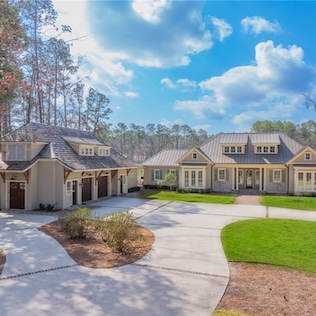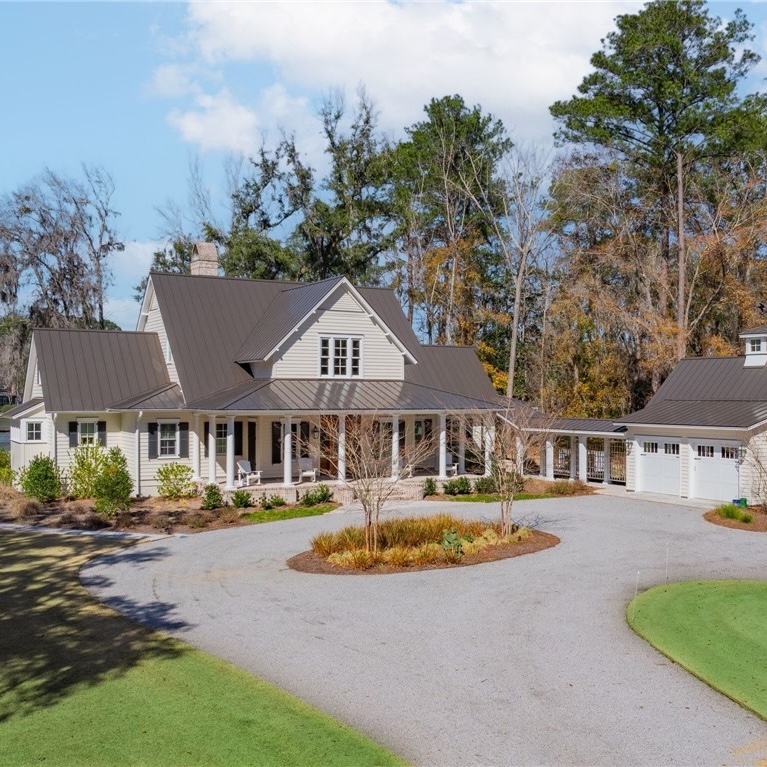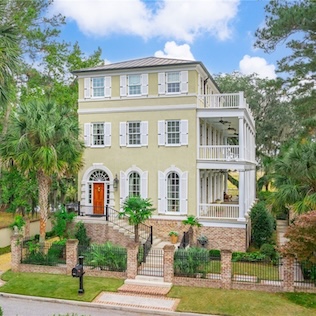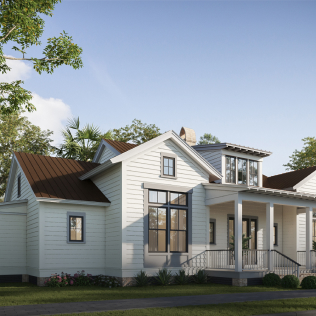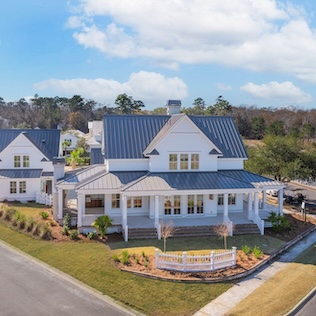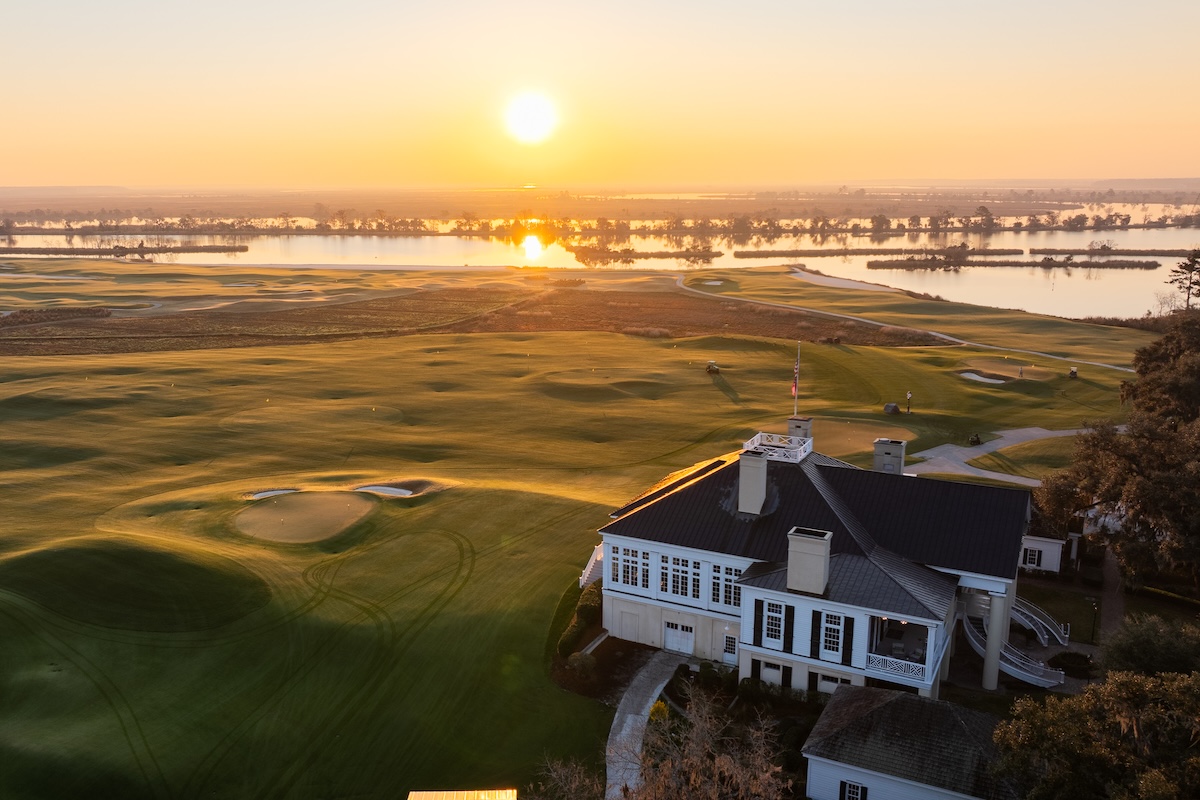Through careful planning, wildlife and habitat management, water conservation and education, The Ford is proud to have earned Audubon Cooperative Sanctuary Program Certification — an acclaimed recognition for environmental achievements and leadership around the globe. We sat down with Valerie Foradas, Chair of the Audubon Committee at The Ford since 2016. Read on to learn how the community commits to conserving the Lowcountry while engaging its members in a fun, out-of-the-box way.

Bluebird & Bat Boxes
Throughout The Ford’s 1,800-acre community, you can find more than 100 bird and bat boxes designed to foster a safe, sustainable environment for the native species while simultaneously enhancing the living experience for residents. The community – from young children to their grandparents – have worked in tandem with our Naturalists to build and install a variety of bird boxes that are elevated and protected with a metal ring around the entrance to fend off larger creatures like snakes and raccoons. “One of the commitments of Audubon Certification is to make sure that we’re nurturing the environment in sustainable and sympathetic ways,” said Valerie. “Locating bat boxes up in our tree canopy allows us to attract migrating bats passing through that feed on our mosquitos and midges here in the Low Country – one of the more natural solutions to pest management. The migrating bats cycle through and return — it’s the rhythm of nature,” shared Valerie.
Native Plant Sale
Another way The Ford aims to enhance the environment and educate residents is through the annual Spring Native Plant Sale. The Ford Press, the weekly digital community newsletter, lists the plants available for purchase beginning in February, with delivery in April. The Audubon Committee teams up with local growers to bring a wide variety of native species to residents’ backyards and beyond. “We’ve planted over 2,000 native plants inside of our five-year plan,” Valerie said. “If we have found the right spot, the plants thrive down here. We have had several fun educational opportunities to learn about suitable plants and trees here at The Ford including ‘Buds + Suds” — a gathering that featured local beers and native plants suitable for our environment, shining a light on what tends to grow best.”


The Ford’s BioBlitz
The BioBlitz is a fun, highly anticipated annual tournament wherein teams of residents compete to photograph and identify native species. The competition is a helpful tool for understanding species diversity in the region and highlights the unique biodiversity found on The Ford’s grounds. The Ford’s Naturalists monitor the residents’ photos and help with species identification; a photography competition centers on the rarest plant, bird or animal species. Throughout the competition, new discoveries are frequently made by The Ford’s citizen scientists and all information is shared with an online database for further scientific study. In fact, during the most recent BioBlitz project, when more than 1,100 species were identified, team “Nature Nurturers” spotted rare roseate spoonbills and eastern phoebes, which hadn’t been seen in the area for several years. “One photograph taken and posted by Cheryl Chip—with the help of her BioBlitz teammates, Dawn French and her husband—showed the eastern phoebe, which is a flycatcher, eating a Chinese Tallow tree seed and thereby possibly spreading the seeds of this invasive tree,” Valerie recalls. “Scientists studying this bird species and their behavior were immediately all over the posted sighting and reached out to Cheryl for more information about the circumstances.”
Monarch’s in the Rough and Monarch Watch Site Designation
The Ford’s “Monarch’s in the Rough” program is the result of partnership between Audubon International, the Environmental Defense Fund and the United States Golf Association. The Program’s goal: to reverse habitat loss for Monarchs by planting and seeding with butterfly weed vast expanses of “out of play” areas on golf courses that can act as migratory paths for Monarch butterflies throughout North America. “We’re able to help reverse the decline of these important pollinators by planting designated areas along The Ford’s Pete Dye-designed golf course,” says Valerie. “We ended up with several acres worth of seed to put on our front and back nine that combined native wildflower seeds with seeds from this Program. Then, as part of our native plant sale, we’re able to install different kinds of Asclepias — the milkweeds that are native to this area, and the primary host plant for Monarchs.” Annual butterfly counts lead by our Naturalists, help our citizen scientist residents contribute to databases tracked by many nature-based organizations including Monarch Watch that track migratory paths of pollinators.
To learn more about The Ford Field & River Club or to arrange a Discovery Visit, call Danielle Hopper at 912.756.5614 or email [email protected].
